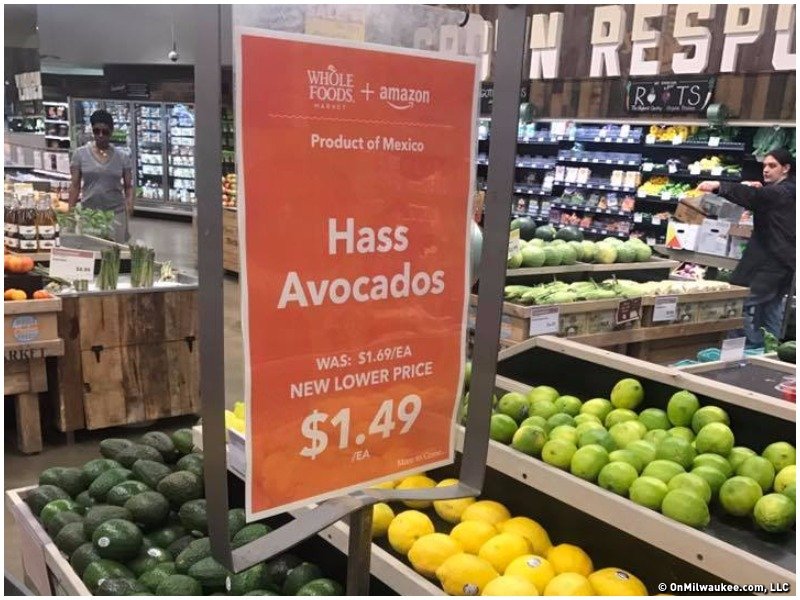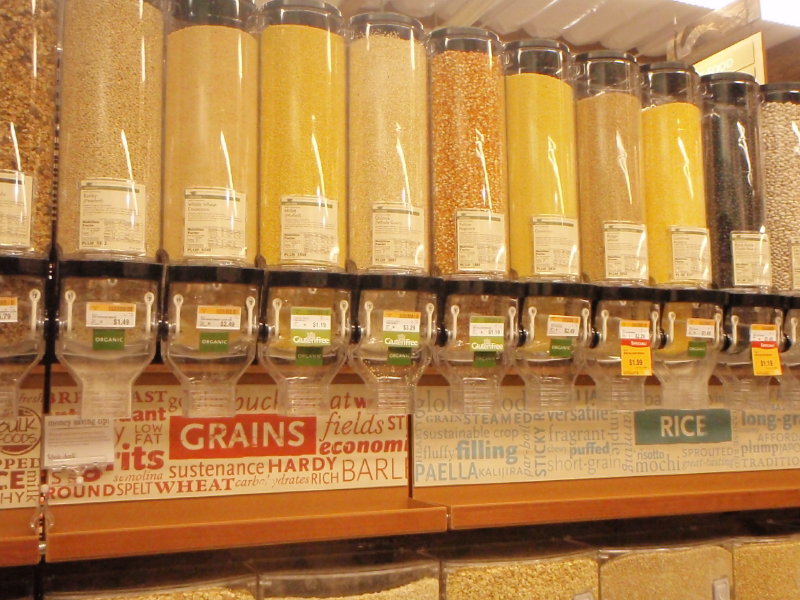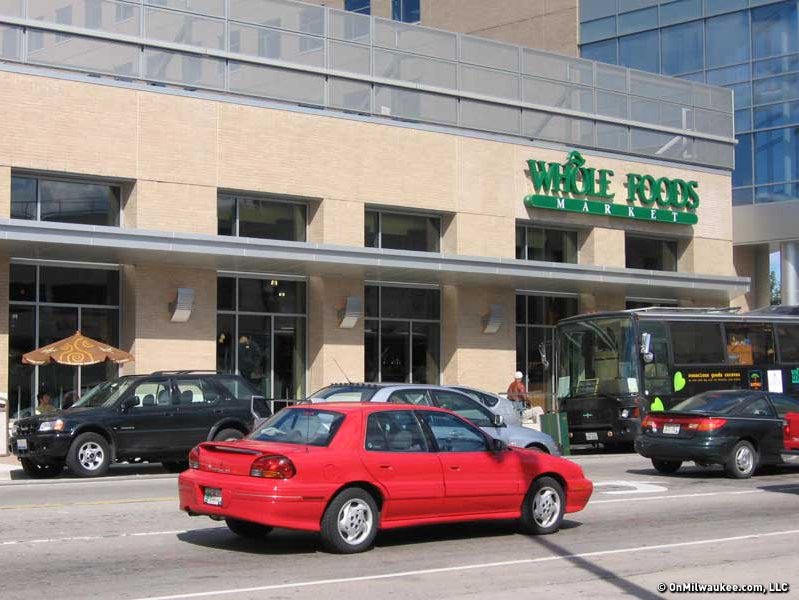Most Milwaukeeans are well aware of the fact that the Whole Foods Market opens today at 2305 N. Prospect Ave., and that a Trader Joe's is set to open by the end of the year in the new Bayshore Town Center. No doubt about it, both are positive additions for Milwaukee in many ways, including the fact they will offer a larger selection of natural and organic food for lower prices. But what does this mean for local co-ops like The Outpost, Beans & Barley and the Riverwest Co-op?
Surprisingly, or not so surprisingly, the smaller co-ops have a positive attitude about the arrival of chain store competition.
"While Trader Joe's and Whole Foods sell more of the same kinds of foods we do, Milwaukee's local conventional and specialty markets like Metro Market have been adding more of these products as well," says Lisa Malmarowski, Outpost's director of brand and store development. "So in essence for us, it's a continual process -- to stay ahead of the curve."
Beans and Barley owner Pat Garrigan says Beans is a restaurant first and a "convenience store" second, so she doesn't think the addition of Whole Foods and Trader Joe's will affect her business.
"We're not going to change anything because people like what we are. We know that people will do weekly grocery shopping at those stores, but that's not the purpose we serve now," says Garrigan.
For decades, consumers accepted that organic food prices are higher than products from conventional supermarkets. Most organic food shoppers understand that organic farmers have to meet stricter quality standards to have their products certified organic, which -- because it increases labor -- increases costs.
However, organic food prices have come down recently, due to large-volume specialty supermarkets like Whole Foods, Trader Joe's, Wal-Mart and the United Kingdom's Waitrose. In early 2006, Wal-Mart announced plans to increase the amount of organic food available in its stores and claimed organic items would be no more than 10 percent higher than their conventionally grown products.
For the most part, the smaller shops can't compete with the chain's prices, and since most families are on a limited food budget, even those with the best intentions to support local business might find themselves wooed by big-store sticker savings.
Malmarowski admits that Whole Foods and Trader Joe's will nibble at Outpost's bottom line, but she is not worried about competition in general.
"I don't think any business worth its salt suffers when competition increases," says Malmarowski. "We get better. We look for more ways to differentiate ourselves. We listen even closer to what our customers are asking for."
Last year, The Outpost lowered the prices of more than 300 items. They also introduced sushi, sliced-to-order deli meats at two of the locations and have partnered with other local businesses like the Pabst Theatre, Schwartz Bookshops and Beans & Barley to strengthen their community ties.
"We are connected with more that 100 natural food cooperatives across the country and know what to expect when a competitor opens -- or even multiple competitors. We're prepared and realistic," says Malmarowski.
Many Milwaukeeans will stick with local co-ops for altruistic reasons. Generally, smaller natural food stores are committed to buying locally and carrying food items that are truly organic. (Alternative organic standards are emerging that bypass formal certification.) And some argue that the same level of freshness in bakery items isn't available in the larger chains.
"I think it's a good thing for the (smaller co-ops) that these stores are coming to our area. Hopefully the new chain stores will raise awareness of good food," says Riverwest Co-op member, Peter DiAntoni. "There's an intimacy at a mostly volunteer-run co-op that the other stores will never be able to come close to."
Molly Snyder started writing and publishing her work at the age 10, when her community newspaper printed her poem, "The Unicorn.” Since then, she's expanded beyond the subject of mythical creatures and written in many different mediums but, nearest and dearest to her heart, thousands of articles for OnMilwaukee.
Molly is a regular contributor to FOX6 News and numerous radio stations as well as the co-host of "Dandelions: A Podcast For Women.” She's received five Milwaukee Press Club Awards, served as the Pfister Narrator and is the Wisconsin State Fair’s Celebrity Cream Puff Eating Champion of 2019.







